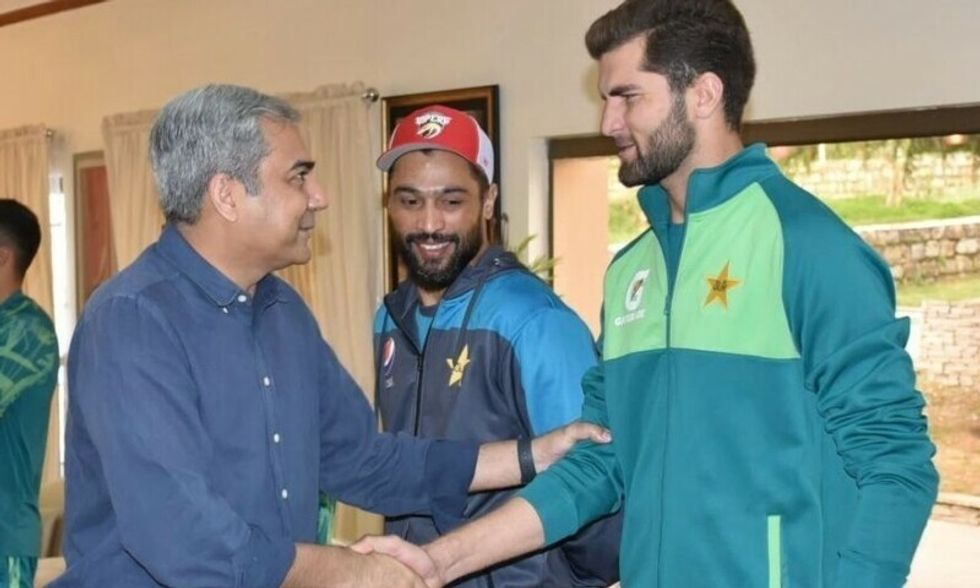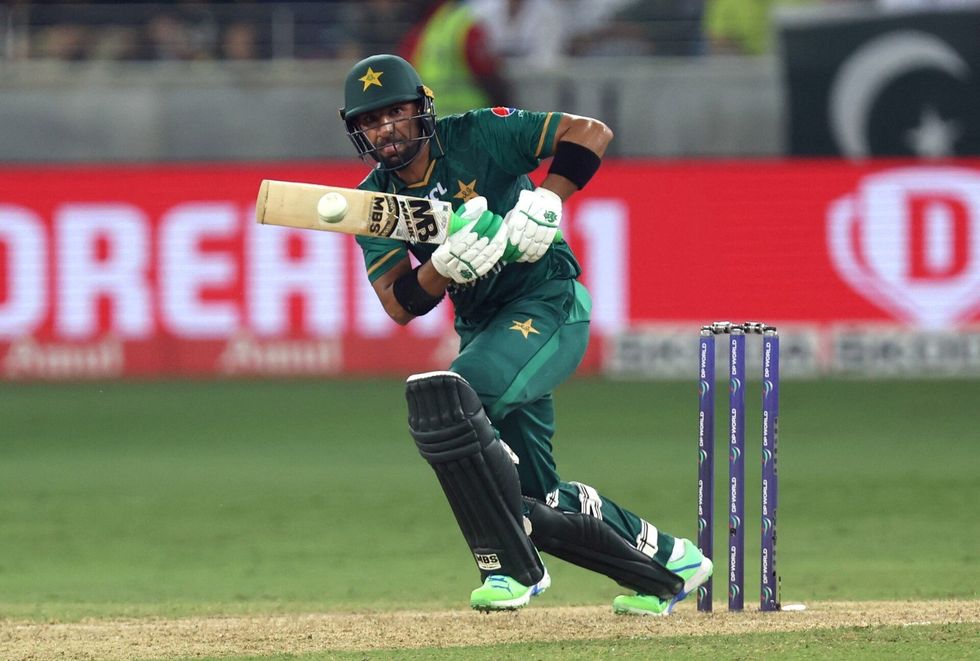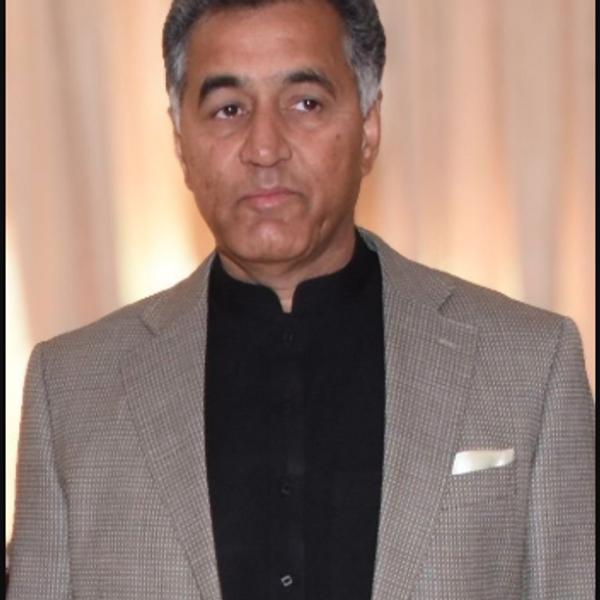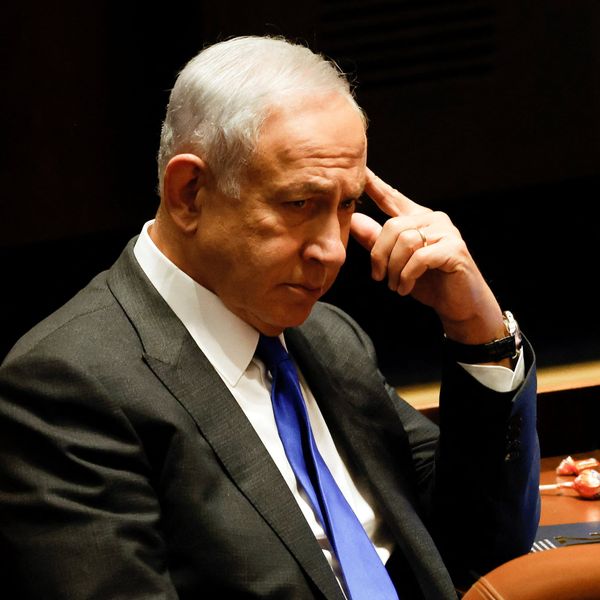Pakistan cricket chiefs want to use so-called ‘connection camp’ to fix what they broke themselves
The camp, planned for September 23, follows Pakistan's disappointing recent run, including a 2-0 Test series loss to Bangladesh and setbacks in the 50-over and T20 World Cups

Zaid Hassan
Producer
Zaid Hassan, a seasoned sports journalist, led Cricket Pakistan as editor for four years, shaping its coverage with insightful analysis. Now a producer at Nukta, he expands into broader storytelling while remaining a key voice in Pakistan’s sports media.

Naseem Shah celebrates with his Pakistan teammates after taking a wicket
AFP
The Pakistan Cricket Board (PCB) is planning a "connection camp" to unify the vision for the national teams across formats and rebuild trust with fans, ensuring they believe the team is heading in the right direction.
Scheduled for September 23, the camp will focus primarily on reviewing PCB's policies rather than addressing immediate national team concerns.
Attendees will include Pakistan's white-ball and Test coaches, Gary Kirsten and Jason Gillespie, alongside mentors of the recently introduced Champions Cup teams. Key players such as red-ball captain Shan Masood and white-ball skipper Babar Azam will also be there.
The camp follows Pakistan's disappointing recent run, including a 2-0 Test series loss to Bangladesh under Shan’s leadership and setbacks in the 50-over and T20 World Cups.
These results have sparked criticism of the PCB, and the board is under pressure to reverse the team's declining international form.
PCB Chairman Mohsin Naqvi, who has been under intense fire, sees the camp as the first step in this process, aiming to unify the team and address the lack of trust from both fans and other cricketing nations.
However, the board is trying to fix what they broke themselves.
Captaincy chaos
One of the most discussed topics in Pakistan cricket over the past year has been the captaincy controversies.
The team has been grappling with the aftermath of sweeping changes made following their 2023 World Cup campaign. Babar Azam was pressured to step down from the white-ball captaincy and eventually relinquished leadership in all formats.

Shan Masood was appointed as the Test captain, while Shaheen Afridi took charge of the T20I side, a decision made by then PCB chairman, Zaka Ashraf. However, Shaheen was removed from the T20I captaincy after just one series following a change in PCB leadership.
Soon after taking over, Naqvi reinstated Babar Azam as the white-ball captain just ahead of the T20 World Cup played earlier this summer.
When Shaheen was dismissed from his role, the PCB issued a statement expressing his (Shaheen’s) support for Babar, but Shaheen publicly denied making such a statement. This incident left Shaheen visibly upset, especially after the PCB released a statement on his behalf without his consent.
The situation escalated, prompting Naqvi to personally visit Shaheen at the national camp in Kakul to address the matter.

However, the damage had already been done. The episode created a rift within the team, leading to disunity that later contributed to Pakistan's disappointing early exit from the 2024 T20 World Cup.
In a press conference earlier in April, a reporter asked Naqvi about any potential issues affecting the team’s unity.
Naqvi acknowledged the challenges, stating, "Look, there are problems everywhere. Even if there are two brothers in a house, they face issues. If we say there aren't any, then we are just engaging in good conversation."
This entire saga has strained the trust between two of Pakistan's key players, with both now struggling for form. The PCB's handling of the situation has been widely criticized, with many holding the administration responsible for the disunity that undermined the team's performance.
Favoritism
Naqvi claimed that Babar Azam was reinstated as Pakistan's white-ball captain on the recommendation of the selection committee, which included figures like Wahab Riaz and Abdul Razzaq.
Interestingly, both Wahab and Razzaq had previously criticized Babar’s captaincy when they were not affiliated with the PCB. However, after joining the board, they shifted their stance and advised that Babar should replace Shaheen as captain right before a major tournament.
Old videos of Razzaq and Wahab criticizing Babar’s leadership resurfaced on social media, raising concerns about their change in opinion. This inconsistency has made it difficult for fans to trust the PCB and has fueled doubts about whether the right people are in charge.
Fans have also been left frustrated by Babar’s apparent preference for Hasan Ali, particularly after Hasan’s return to the T20I squad following Haris Rauf’s injury just before the World Cup. Hasan, who had been out of favor for a while, was brought back as cover for Rauf but failed to impress during the T20I series against England and was subsequently dropped again. This decision, along with Hasan’s famous words of support for Babar, has raised questions about favoritism within the team.
Instability everywhere
Frequent changes in the board, coaching staff, and captaincy have contributed to creating instability within the team.
This volatility, especially since August 2021, when Ehsan Mani stepped down as chairman, has been prominent. Since Mani’s exit, leadership has shifted between Ramiz Raja, Najam Sethi, Zaka Ashraf, and the current chairman, Mohsin Naqvi.
The constant reshuffling in management and coaching roles has led to players feeling insecure about their place in the team, which has negatively impacted performance.
Lack of communication
Poor communication and unclear role definitions have added to players' uncertainty and dissatisfaction. For instance, Pakistan batter Iftikhar Ahmed, speaking ahead of the Champions Cup, expressed frustration with his role in the batting order.

His remark that he is a tailender, not a middle-order one, seemed to subtly criticize the Pakistan management for not promoting him in the lineup.
"I am not a middle order batter, I am a lower order batter. I am not an all-rounder, I am a tailender. If you see, I bat at No.7 or 8. And if you look at the all-rounders and middle order batters around the world, you'd see they bat at No.4 or 5. But I play at No.7 and 8 and I think of myself as a tailender," said Iftikhar.
Lack of proper planning
Pakistan's focus on the domestic one-day competition, Champions One-Day Cup, is questionable, given its timing.
The tournament is scheduled in Faisalabad from September 12 to 29, just before Pakistan’s Test series against England.
Despite the Test captain, Shan Masood, admitting that Pakistan doesn’t play enough Test cricket, no efforts were made to prepare the players with a four-day format competition before the series.
Meanwhile, Australia’s pacers are preparing for the Border-Gavaskar Trophy by playing in the Sheffield Shield.
Such decisions raise concerns about whether the PCB is effectively planning for Pakistan’s international commitments and managing the national team properly.
To regain trust, the PCB must take responsibility for the turmoil it has created and work to establish a stable environment for the players. Improved communication, better planning for domestic competitions, and a clear vision at all levels of the game are essential to reversing Pakistan’s recent decline. Ultimately, the success of these initiatives will be judged by the team's performance on the field.










Comments
See what people are discussing